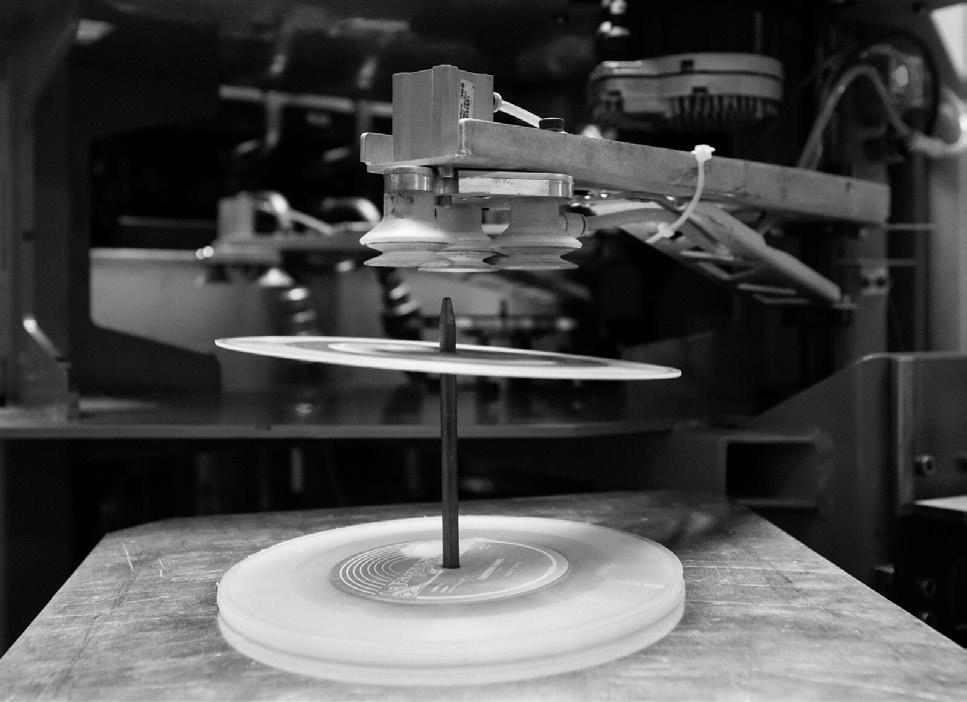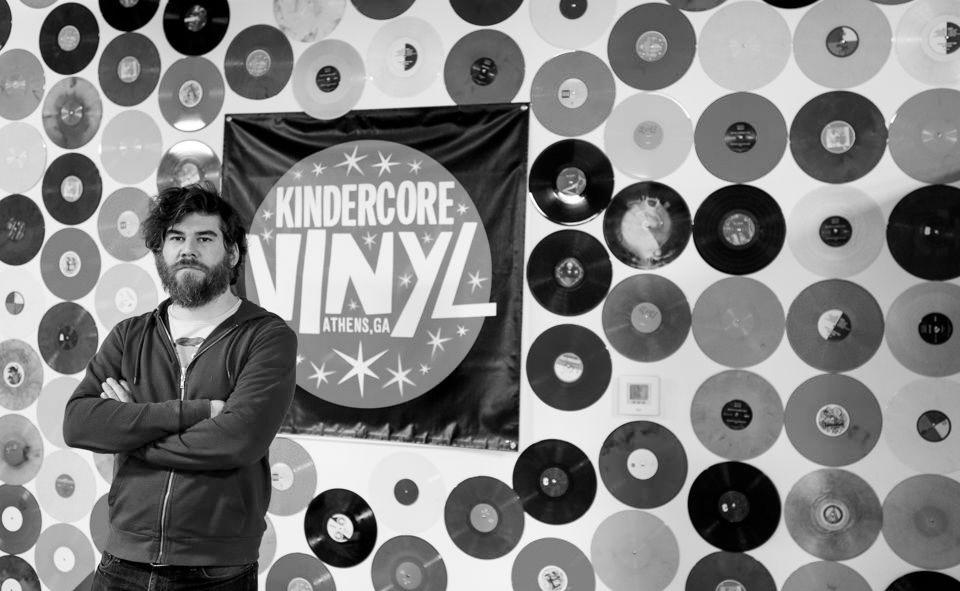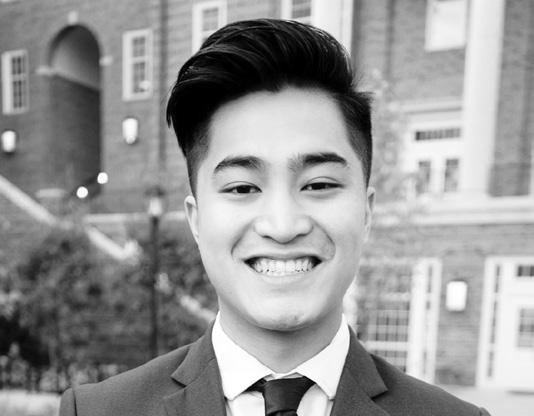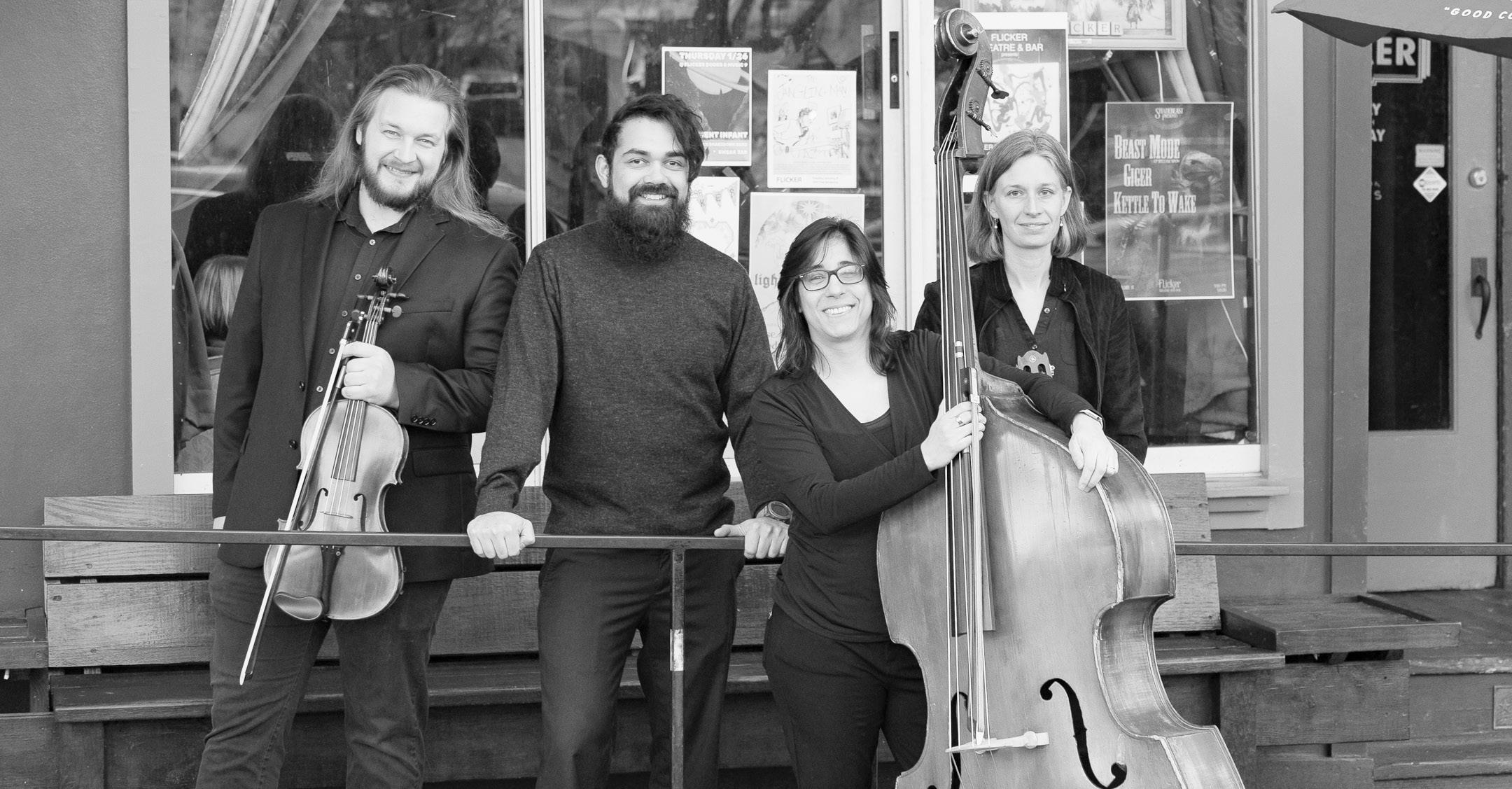
16 minute read
Kindercore is no more Turmoil and change at local record pressing plant
Lilly Kersh
After years of turmoil among ownership and investors, Kindercore Vinyl is no more. The record pressing plant that put Athens on the map for vinyl manufacturing has been replaced by Classic City Vinyl Works, and none of Kindercore’s founders remain at the operation.

The plant, located on Fritz Mar Lane in North Athens, was born from the ashes of the Kindercore Records music label of the mid ‘90s.
Although the facility still operates as Georgia’s only record pressing factory, the legacy of Kindercore as Athens’ namesake for local music and vinyl manufacturing has ended. With management and ownership at odds, its demise was as profound and storied as its rise.
“Kindercore Vinyl, just like Kindercore Records, existed for a period of time. And during that period of time, for both those businesses, there were good things and bad things and success and failures,” Ryan Lewis, a co-founder of Kindercore, said. “But overall, I’m really proud of what the businesses did, and the impact that they had on the community and on the arts in general.”
Lewis and Dan Geller founded the Kindercore label in 1996, releasing music by local groups such as of Montreal and Japancakes before reaching a national scope and moving to New York in 1998. The label ultimately came to an end in 2003, but its heyday as a hallmark of ‘90s Athens music never faded from the founders’ memory.
In 2016, Lewis and Geller partnered with recording engineer Bill Fortenberry and former record store owner Cash Carter to revive Kindercore as a record pressing plant. The group secured a team of investors and on Halloween of 2017, the plant pressed their first record, “Start the Panic” by The Agenda, the debut album of Lewis’ former band. Since then, the company has made vinyls for national and international artists like Paul McCartney, Willie Nelson, Halsey and Athens’ own R.E.M.
“We shattered so many of the goals that we had for ourselves, and I think it was because everyone was so personally dedicated to it. But that’s not particularly sustainable in an unforgiving business like manufacturing,” Lewis said. Friendly foreclosure
Despite success and national recognition, the financial realities of running a pressing plant became unfeasible for Kindercore’s founders, and investors ousted the previous management to rebuild it as Classic City Vinyl Works.
According to Carter, Kindercore fell behind on orders and payments to vendors over the past few years due to failing and expensive machinery, a shortage of PVC, the material that records are made of, and complications from the pandemic.
In August 2020, Michael Greig Thomas was brought into Kindercore as a management consultant. Greig Thomas said he believes original management pressed quality records but didn’t have a grasp on how many records they needed to produce to breakeven. Getting out of debt involved tripling manufacturing through hard work and long hours and bringing in big projects for artists like Halsey and Paul McCartney.
But in 2022, the company still faced financial difficulties, and according to Carter, the chief operating officer at the time, he faced barriers from investors to update failing equipment. Underneath financial agreements lies a fundamental difference in the philosophies of the investors and the company’s founders.
“[Kindercore] was more like a band,” Lewis said. “It was the same DIY indie thing that had led us to start the record label … [The investors] wanted to run a numbers business that was just putting out as much product as possible … It was just incompatible.”
While the investors may not have seen eye to eye with the plant’s founders, Greig Thomas also believes the company’s financial situation needed intervention.
“To the credit of the investor group, they did put more funds in on a couple occasions. I just don’t think that the management team that was in place necessarily knew how to make it successful,” Greig Thomas said.
Ultimately, the company would need support to keep presses operating. George Fontaine Sr., a co-founder of the Georgia Theatre, University of Georgia Music Business Program and owner of the independent label New West Records, was a limited partner in Kindercore Vinyl as part of the investor group.
Fontaine stepped in as a majority shareholder to recapitalize the company and turn the financial situation around. According to Carter, the sale has been referred to his lawyer as a “friendly foreclosure.”
“I wanted to keep this thing operating in Athens,” Fontaine said. “It’s a good thing for Athens, and that’s why I stepped up.”
Fontaine brought in Scott Hughes as a managing partner in fall 2022. Hughes has worked in music for over 20 years and co-founded a music streaming and digital downloading service, PassAlong Networks. Splitting his time between Nashville and Athens, he is the only investor involved in the company’s day-to-day operations.
In October 2022, about a month after Hughes was brought in, Carter, the last remaining founder at the plant, was fired. Carter said he was not given a reason for his termination.
“The prior management had made enormous mistakes,” Hughes said. “[They] drove this company into the ground … I’ve never been sworn at by so many people by email by people frustrated with Kindercore.”
However, without a background in manufacturing or vinyl and facing failing equipment, turnover in management and a loss of the company’s knowledge base, Hughes has a lot of work cut out for him. According to Lewis, safety at the plant and product quality have declined at the company. But Fontaine sees Hughes as essential to the company’s future.
“[Hughes] has a career in turning around businesses,” Fontaine said. “He understands the music business.”
Greig Thomas believes while some may take issue with the change in ownership at the plant, Hughes is doing the best he can with a difficult task and that the situation at the company needed to change.
“[The founders] that had this very indie dream maybe lacked a little bit of the corporate desire,” Greig Thomas said. “There was a lot of stuff that was neglected … People were underpaid… It wasn’t perfect. They should have been out of business.”
The company continued to operate at a loss into 2023 as the investors sought to dig Kindercore out from its imminent financial grave. From Greig Thomas’ perspective, Fontaine’s action protected jobs and saved the company, which has around 40 employees.
Geller owns the legal rights to the name Kindercore and took the name with him. The plant now operates as Classic City Vinyl Works. But more than a change in ownership shares and business licenses, the new company represents a transition in principles and visions for the pressing plant.
Personal over professional
In its recent history, Kindercore Vinyl has been fraught with personal animosities, tensions and disputes among management that have made the work environment dysfunctional.
“My experience with Kindercore and Classic City was that the personal would pervade over the professional,” Greig Thomas said. “There was [constant] sniping back and forth between the heads of the department. They really made it challenging to be there.”
By the end of 2020, Lewis began working from home as a result of the tensions after a long history of handling the day-to-day operations as president.
“When there were disagreements … It all felt personal to everybody,” Lewis said. “I think part of the friend-based nature of the business was its biggest downfall.”
In addition, Carter butted heads with investors. He is considering legal action against the company and is fighting against a noncompete clause in his contract that seeks to keep him from working in record pressing.
“They didn’t want me but then they don’t want me to work as their competition,” Carter said. “I need to work. I have kids, I have a family. And that’s really where it’s really bothered me.”
Personal feuds and miscommunication have contributed to the company’s difficulties, and a loss of functional management had made it hard to operate the business, according to those involved in operating the plant.
“I think that the original debt was in no small part a combination of the board and the management not communicating, working together enough,” Greig Thomas said. “There’s always been a lot of opportunities for people to just speak, sit down and talk and instead it’s been emails and lawyers.”
Setting the record straight
Record pressing in Athens will continue without Kindercore. For many involved, the change in name is important to separate the fundamentally different companies.

“I wish [Classic City Vinyl Works] the best, but it’s not the company that we started,” Lewis said. “It’s not an artist-run, musician-operated business in the same way that it was before. And the focus is on trying to turn a quick profit versus trying to build a lasting quality business.”
While the company is by no means thriving after a tumultuous past few years, Classic City Vinyl Works will continue to fulfill the record manufacturing piece of the Athens music puzzle. But the new chapter will be written by different authors.
“I’d like to honor Ryan, Dan and Cash for bringing vinyl record pressing to Athens,” Hughes said. “We are honored to continue that.”

Hear my voice
Legislators use trans hate for political gain
Jamie Thompson
There’s no such thing as “transgender ideology.” We’ve heard the phrase a lot recently, often followed by “think of the children” in the same breath. All across the country, politicians and legislators are enacting bans and restrictions on gender-affirming healthcare. They justify these measures by crying about the transgender ideology, a supposed epidemic corrupting our youth. There’s no ideology. There are only trans people.
These cries echo the fear of the “gay agenda.” It’s the same song, different targeted community, and they can’t even be bothered to change all of the words. Think of the children. Which children?
Many of these healthcare bans carve out convenient exceptions to allow “corrective” surgeries on intersex children, those who are born with both female and male biological traits, which isn’t medically necessary but often damaging and traumatic. Who’s thinking about them?
I could pull out any number of medical studies and statistics to validate my existence and defend my younger trans siblings. Several studies have found the rate of detransitioning, or the rate that youth regret altering their gender, to be around 1%. But even within that 1%, most of them detransition because of factors like financial difficulties or a lack of social support, and many end up resuming their transition later in life. Among those that do realize transitioning isn’t for them, many of them express that they still don’t regret the experience.
I could make those arguments, but I’ve seen too many friends and allies repeat the statistics until they turned blue in the face. I won’t waste my time. For the people who care, those studies and more are only a quick internet search away. Those arguments have been made again and again, by people more qualified than me. Instead, I want to illuminate the human side of this issue.
My story isn’t uncommon in the trans community. When I was growing up, I knew I was different, even before I had the vocabu -
What’s for lunch?
lary to explain it. Recently, one of my cousins pulled me aside and told me that I was a miserable little kid. He didn’t understand my transition at first, but when he saw me, he realized it didn’t matter. He didn’t have to understand because he could see how much happier I was.
Perhaps I would’ve been a happier child if I’d had access to gender-affirming care or at least been allowed to cut my hair and use a different name. Puberty was even worse for me than others, and puberty blockers would’ve saved me so much pain. Even if I’d turned out to be wrong, the effects are reversible. I suffered so much unnecessarily, and these laws mean that many more children will continue suffering too.
We, as trans people, are not mutilating bodies. I’m participating in the hallowed and human act of creation. As Michelangelo coaxed sculptures from stone, I’m making my body my own so that it actually matches who I am as a person. I’m not an ideology or an epidemic. I’m a son, a brother, an uncle and a boyfriend. I was a little boy once, too.
Even if you think the restrictions on healthcare for minors aren’t an issue, I need you to understand that it won’t stop there. States are already expanding on their restrictions, now focusing on patients over the age of 18. The Texas State House is considering a bill that could jail doctors for providing gender-affirming care — or even referring them to another provider — to those under 26. This was never about protecting children. The people writing these laws want everyone like me eradicated, and they will not stop there. Being transgender right now feels like being a canary in a coal mine. I’ll die before I let anyone force me to be something I’m not. My life is my own, and my body is my own. I have the right to live authentically and be happy. I’m prepared to go down singing. If they silence me, who will take up my song? Will you?

Jamie Thompson is a senior English major and an ambassador for the Pride Center at UGA.

Students share importance of healthy eating on campus
Maggie
Abboud
As I walk through Bolton Dining Commons, trying to decide what I should eat for lunch, I constantly ask myself: What is in this specific dish? Dining Services at the University of Georgia offer a variety of foods for their meal-plan users. While they do provide menu tags that indicate if the foods are vegan, meatless, heart healthy or halal, and provide food allergen information, those indication cards lack the nutrient and contents of the meals themselves.
UGA provides students with dining hall menus through Nutrislice, a website that allows users to “build your plate.”
Through the site, students can select the dining hall where they plan to eat and view the menus for the day. However, most of the time, students are so busy during the day that they lack the free time to pre-plan what they will eat for breakfast, lunch and dinner.
While some dining halls like Bolton provide QR codes for some dishes, I propose that the nutrients and contents of all
Spring 2023 Staff
Parker Allen freshman undecided major “Oftentimes, when I look for the menu tag and nutrient labeling on foods in the dining halls, they’re not easily accessible. So, yes, I definitely feel like having the nutrients and contents listed in the dining halls would help to make good decisions on meals as well provide an easy way to calculate the total meal aspects and macronutrients.” the meals served in any of the dining halls be provided to students by any means necessary, out of safety and convenience for the students.
The Red & Black asked students about their personal dining hall experiences and whether they think displaying nutritional content informa - tion in dining halls is viable and effective.

Maggie Abboud is a freshman microbiology major.
Herrera PROMOTIONS ASSISTANTS Bryce Colgate, Katherine White OUTREACH MANAGER Michaya Costen
CREATIVE SERVICES 706-433-3021
CREATIVE SERVICES MANAGER Maddie Daniel MULTIMEDIA STUDIO ASSISTANT Tim O’Brien DIVERSITY & INCLUSION COMMITTEE

CHAIR Libby Hobbs
AT-LARGE MEMBERS Carson Barrett, Claire Han, Dawn Sawyer, Melanie Velasquez
Professional Staff
EXECUTIVE DIRECTOR Charlotte Norsworthy 706-433-3009 | cnorsworthy@randb.com
CHIEF FINANCIAL OFFICER Melissa Mooney 706-433-3007 | mmooney@randb.com
NEWSROOM ADVISER Kayla Renie 706-433-3000 | krenie@randb.com
CREATIVE SERVICES DIRECTOR Brandon Dudley 706-433-3021 | production@randb.com
ADVERTISING DIRECTOR Carter Webb 706-433-3012 | cwebb@randb.com
GUIDES & MAGAZINES ADVISER Mary Logan Bikoff 706-433-3000 | mbikoff@randb.com
ADMINISTRATIVE ASSISTANT Barri Leach 706-433-3011 | bleach@randb.com
ENTERPRISE ADVISER Willoughby Mariano 706-433-3000 | editor@randb.com
About Us
Publishing online daily at redandblack.com and in print each Thursday of the academic year by The Red & Black Publishing Company Inc.
Subscriptions: $84. All rights reserved. Reprints by permission. Opinions expressed are those of contributors and not necessarily those of The Red & Black Publishing Company Inc. The Red & Black has covered the University of Georgia and Athens since 1893. Independent of the university since 1980, The Red & Black is a 501(c)(3) not-for-profit company with the dual missions of training students for future careers in journalism and serving our community as an independent news source. We receive no funding from the university and are self-supporting through advertising, events and donations.
Corrections avoid it just in case.”
Daniel Bulos fifth-year management and risk management and insurance major “While I’m not someone who dives deep into the facts behind every single thing that I eat, I feel like it would be nice to get a good idea about what I consume on a daily basis. I think it would be a great help for people to see the contents of food in terms of protein or fat in order to know what to eat or avoid if they chose to pay attention.”
Areeb Khan freshman biology major


“Since I only eat halal foods, if the contents of the foods served at the dining halls was given, it would make it a lot easier for me to know which foods I am actually able to eat. I have come pretty close to eating foods that are not halal, and if there was an indication that there was gelatin in the food, this situation would have been avoided. ”
As a student-run news organization with the mission of training journalists, we know that mistakes happen and we do our best to correct them as quickly as possible.
If you spot a factual error, please let us know by sending a correction to editor@randb. com. Corrections to items in print editions are published in the next possible print issue. Corrections for online-only articles are posted at redandblack.com/corrections.
Athens Tango Project ilumina la cultura Argentina en Athens
Isabella Aranda
Desde el 2012, Laura Camacho ha traído una porción de Sudamérica al sur de Estados Unidos a través del Athens Tango Project. Inspirada en la música de su infancia en Argentina, Camacho mezcla la música del tango tradicional con nuevas melodías. El proyecto lanzó su primer EP, “Para Compartir,” en enero del 2023.

Camacho fundó el Athens Tango Project hace más de diez años, tocando el bajo en el conjunto. Inició el proyecto compartiendo su conocimiento del tango, que es a la vez un género musical y un baile social, con otros músicos en una interpretación mixta de música y baile. Desde entonces, el proyecto ha sido una colaboración de múltiples músicos, con la misión de compartir la cultura argentina y los orígenes del tango con el público local.
Camacho enseña tango de una manera que enfatiza no solo la música sino también la cultura, creyendo que el tango está hecho de la emoción que los músicos evocan a través de su instrumento.
“Tienes que traer esa [emoción] allí. Porque solo será el 25% de lo que digo lo que se traducirá[en] la música. Y creo que tiene que estar ahí. De lo contrario, ¿qué estás haciendo si no estás poniendo un poco de emoción allí?” dijo Camacho.
Desde Buenos Aires, Argentina, Pablo Aslan ha conocido a Camacho a través de su trabajo como bajistas de tango. Aslan elogia la dedicación del Athens Tango Project a la música.
“Cualquiera que toque tango fuera de Argentina tiene el desafío de encontrar gente que entienda la música, que sepa tocar la música, que tenga el compromiso de aprenderla. Eso es realmente lo que me llamó la atención, que encontró un grupo de músicos que estaban comprometidos,” dijo Aslan.
El Athens Tango Project funciona como una máquina con múltiples partes móviles, todas armonizadas junto con Camacho como capitán. Conoce bien la forma en que debe sonar el tango y atribuye gran parte de su influencia en el tango a su abuela, a quien vio bailar tango en Buenos Aires, Argentina.
“Tenía muchas ganas de que me tomaran como algo que venía de la gente, venía de las calles. Se elevó con músicos de formación más clásica [a lo largo de] los años, pero es música de la gente, para la gente,” dijo Camacho.
Después de su primer sencillo, “Oblivion,” el grupo se reunió durante la pandemia para crear su nuevo EP. Apropiadamente llamado "Para Compartir", que significa "To Be Shared", el EP presenta una mezcla de tango con influencias del rock.
En canciones como “Drive,” originalmente compuesta por R.E.M. de Athens, “Para Compartir” produce una innovación que mantiene la autenticidad del tango al tiempo que incorpora sonidos nuevos y creativos. En consonancia con la misión del grupo, su música une el tango con la cultura musical de Athens para crear melodías excéntricas.
El pianista y compositor Emiliano Messiez conoció a Camacho en un festival de tango en Filadelfia mientras tocaba en la orquesta de Messiez como invitada especial. Desde entonces, Messiez ha seguido el trabajo del Athens Tango Project.
“Por lo general, cuando hablamos de tango, esperamos encontrar argentinos tocando.
[En el proyecto de Athens] encuentras gente de todo el mundo tocando... No todos saben cómo tocarlo,pero estos muchachos saben,” dijo Messiez.
Athens Tango Project illuminates Argentinian culture in Athens
Since 2012, Laura Camacho has brought a slice of South America to the American South through the Athens Tango Project. Inspired by the music of her childhood in Argentina, Camacho mixes traditional tango music with new melodies. The project released its first EP, “Para Compartir,” in January 2023.
Camacho founded the Athens Tango Project over ten years ago, playing bass in the ensemble. She started the project by sharing her knowledge of tango, which is both a music genre and a social dance, with other musicians in a mixed performance of music and dance. Since then, the project has been a collaboration of multiple musicians, with a mission of sharing Argentinian culture and the origins of tango to local audiences.
Camacho teaches tango in a way that emphasizes not just the music but the culture, believing that tango is made of the emotion that musicians evoke through their instrument.
“You have to bring that [emotion] in there. Because it’s only going to be 25% of what I’m saying that’s gonna be translated [in] the music. And I think it has to be there. Otherwise, what are you doing if you’re not putting a little bit of emotion in there?” Camacho said.
From Buenos Aires, Argentina, Pablo Aslan has known Camacho through their work as tango bassists. Aslan commends the Athens Tango Project’s dedication to the music.

“Anybody who plays tango outside of Argentina has the challenge of finding people who understand the music, who can play the music, who have the commitment to learn it. That’s really what struck me, that she found a group of musicians who were committed,” Aslan said.
The Athens Tango Project works as a machine with multiple moving parts, all harmonizing together with Camacho as the captain. She is well versed in the way in which tango should sound and credits a lot of her influence in tango to her grandmother, who she watched dance to tango in Buenos Aires, Argentina.
“I really wanted to be taken as something that came from the people, came from the streets. It got elevated with more classically trained musicians [over] the years, but it’s music from the people, for the people,” Camacho said.

After their first single, “Oblivion,” the group came together during the pandemic to create their newest EP. Fittingly named “Para Compartir,” which means “To Be Shared,” the EP brings forth a blend of tango with rock influences.
In songs such as “Drive,” originally composed by Athens’ R.E.M., “Para Compartir” produces innovation that maintains the authenticity of the tango while incorporating new and creative sounds. In alignment with the group’s mission, their music unites tango with the music culture of Athens to create eccentric melodies.
Pianist and composer Emiliano Messiez met Camacho at a tango festival in Philadelphia while playing in Messiez’s orchestra as a special guest. From then on, Messiez has followed the work of the Athens Tango Project.
“Usually when we talk about tango, we expect to find Argentinians playing. [In the Athens project] you find people from all over the world playing ... Not everyone knows how to play it, but these guys know,” Messiez said.








